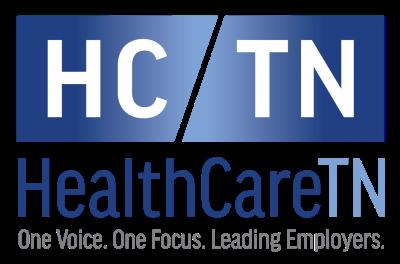
3 minute read
Tennessee Employers Face an Unhealthy Labor Pool
By CRISTIE TRAVIS
Unfortunately, Tennessee sits in the middle of the obesity, diabetes, and hypertension belts in the US -- a triple-threat to the health, productivity, competitiveness and economic vitality of our region. In Tennessee:
33% of adults have hypertension
· 13% of adults have diabetes
34%, 3 times the number of people diagnosed with diabetes, have pre-diabetes, and without lifestyle changes, most people with pre-diabetes will develop type 2 diabetes in 5-6 years. Hypertension and diabetes are strongly correlated co-morbidities. We know that:
Approximately 75% of people with diabetes also have hypertension. People with both hypertension and diabetes are four times as likely to develop heart disease as those without either.
Hypertension and diabetes are risk factors for cardiovascular disease, which accounts for one-third of all deaths in the US and costs that exceed $1 trillion per year.
72% of adult Tennesseans are overweight or obese, both of which are underlying drivers of pre-diabetes, diabetes, and hypertension.
These statistics make it clear that Tennessee employers face a significant challenge to improve the health and productivity of their workforces to remain competitive and achieve targeted business results.
What Should Employers Do?
The good news is that if employers take these two essential steps, they can start improving the health of their workforce.
Implement a Comprehensive Obesity Benefit Design: Addressing obesity, as an underlying cause of diabetes and cardiovascular disease, is an essential strategy to effectively manage employee health benefits.
HealthCareTN recommends a comprehensive, evidence-based obesity benefit design to reach as many employees as possible with approaches that will be successful for them. For example, for employees with pre-diabetes (and who may also have hypertension), the CDC’s National Diabetes Prevention Program

(National DPP) checks off the boxes for an effective lifestyle management offering:
· It is an evidence-based, effective lifestyle change program that helps fill a benefit offering for all your employees with pre-diabetes that are overweight or have obesity.
It can prevent or delay the onset of type 2 diabetes by 58%.
A three-year ROI of approximately $8,000 compared to a program cost of approximately $600.
Deploy Effective Condition Management Strategies: Employers should offer benefits and benefit programs that prevent or delay disease progression or downstream complications. For example, the St. Louis Area Business Health Coalition suggests:
Benefit Design Strategies
Provide no or low out-of-pocket costs for screening supplies such as blood pressure cuffs and glucose monitors.
Adopt the expanded pre-deductible coverage for medication and services for chronic conditions.
· Consider coverage for evidence-based disease management programs such as National DPP, diabetes self-management education, self-measured blood pressure.
Benefit Program Considerations
Offer programs to provide clinical oversight, care management, and medication adherence support.
Provide access to low or no-cost screening opportunities at the worksite, in the community, or through home test kits. Support employees getting connected to high performing in-network programs, services and providers through resources (such as navigation and/or transparency vendors) and decision-support tools/ information (such as provider recognition programs)
Can Employers Achieve Results?
The experience at Metro Nashville Public Schools (MNPS) shows the difference a strategic, comprehensive, evidence-based approach can make for employee health and for health benefit plan costs.
MNPS programs are built on the core belief that healthier employees are better employees. They focus on health and believe the cost savings will naturally flow. MNPS offers several lifestyles change programs, including the National DPP, that meet the needs and preferences of a diverse workforce. Since implementing the National DPP in 2019, MNPS is:
Identifying more employees with pre-diabetes and identifying them earlier, allowing for earlier intervention to impact future outcomes.
Starting to see a downward trend in incidence of newly diagnosed diabetes.
Beginning to experience a reduction in health benefit plan costs overall and costs associated with diabetes.
How Can Employers Take the Next Step?
Consider no-cost pilots: Through a partnership with the Tennessee Department of Health, HealthCareTN is offering Tennessee employers no-cost pilots for the National DPP and a hypertension management program through Omada. Both 12-month pilots guide employees through lifestyle modifications and, for hypertension, medication therapy (if necessary), to reduce the risk of diabetes and cardiovascular disease. These pilots give employers the opportunity to “test drive” solutions and approaches and evaluate if they are appropriate for their workforce.
Attend “Re-Design for Value: Innovative Approaches for Chronic Conditions”: Learn more about effective approaches and get employer tools to prevent and manage chronic conditions from national and regional experts including CDC, healthcare leaders, and employers at HealthCareTN’s June 21 conference at Belmont University in Nashville, TN. In-person and virtual options are available. Learn more and register at https://bit.ly/3L5ROMo
For more information about the no-cost pilots, how you can join other Tennessee employers in peer networking about pre-diabetes, diabetes, and hypertension management, and registering for the June 21 conference, contact Phil Belcher at HCTN – pbelcher@hctnonevoice.org
About HealthCareTN
In January 2023, Knoxville, TN-based HealthCare 21 Business Coalition (HC21) and the Memphis Business Group on Health (MBGH) merged to create HealthCareTN, the state’s only employer-led, non-profit organization dedicated to employer members as they work to ensure high-quality, affordable healthcare and health benefits. HealthCareTN harnesses the rich legacy and strength of both previous organizations to drive meaningful, quality results across a broader statewide footprint. Joining together creates more impact with over 600,000 covered lives in Tennessee, more focus on the most critical issues impacting employers, and more collaboration as leading employers across the state network, share best practices, and offer different perspectives to address challenges.
Cristie Upshaw Travis Co-CEO, HealthCareTN ctravis@HCTNonevoice.org www.HCTNonevoice.org













